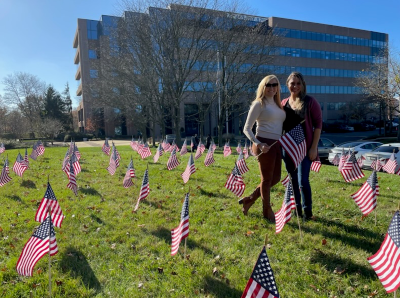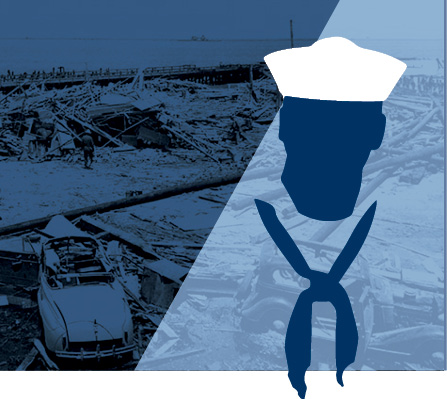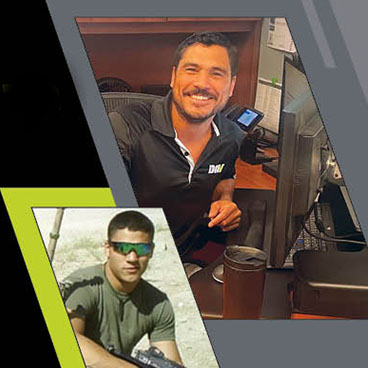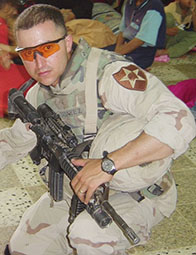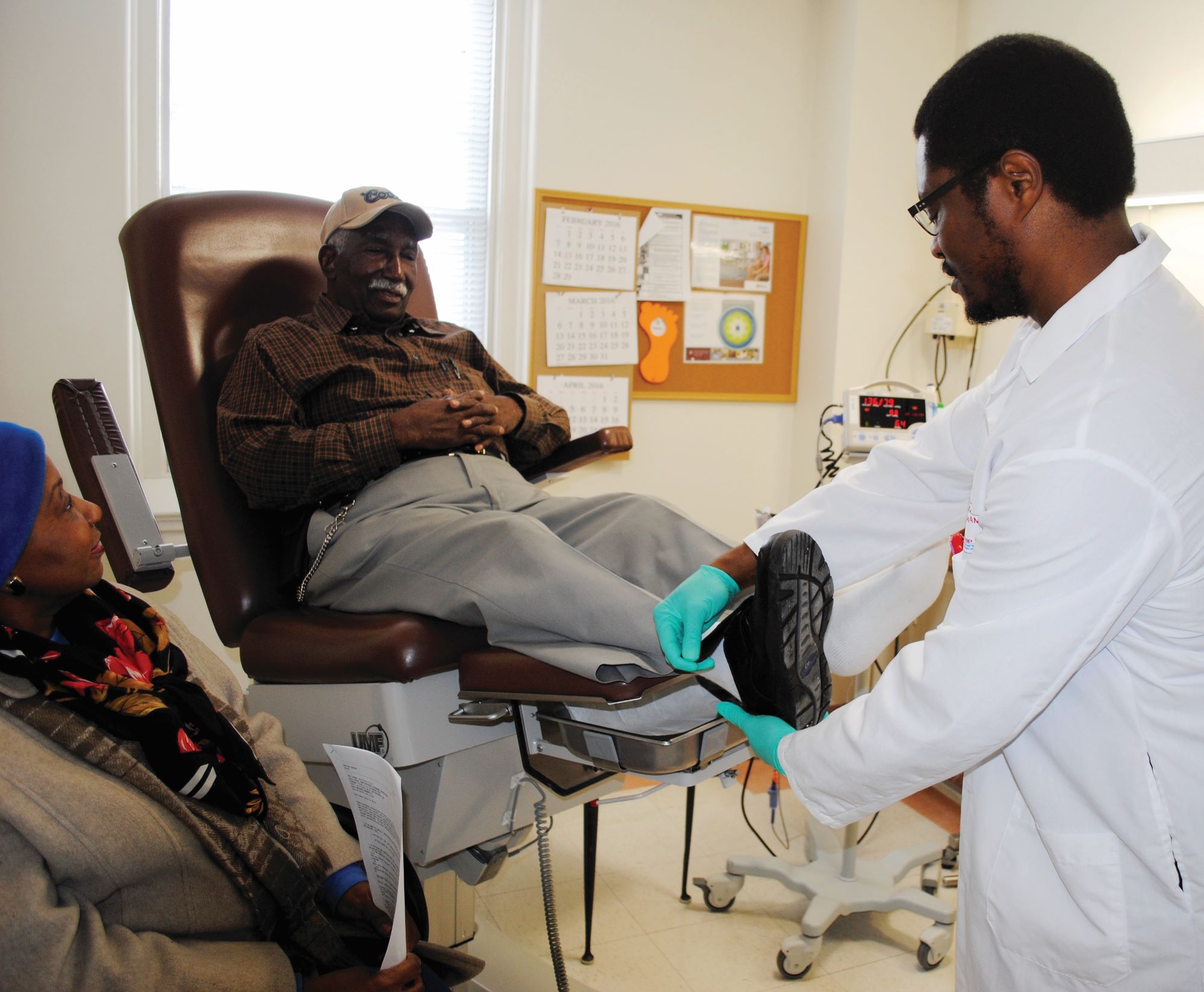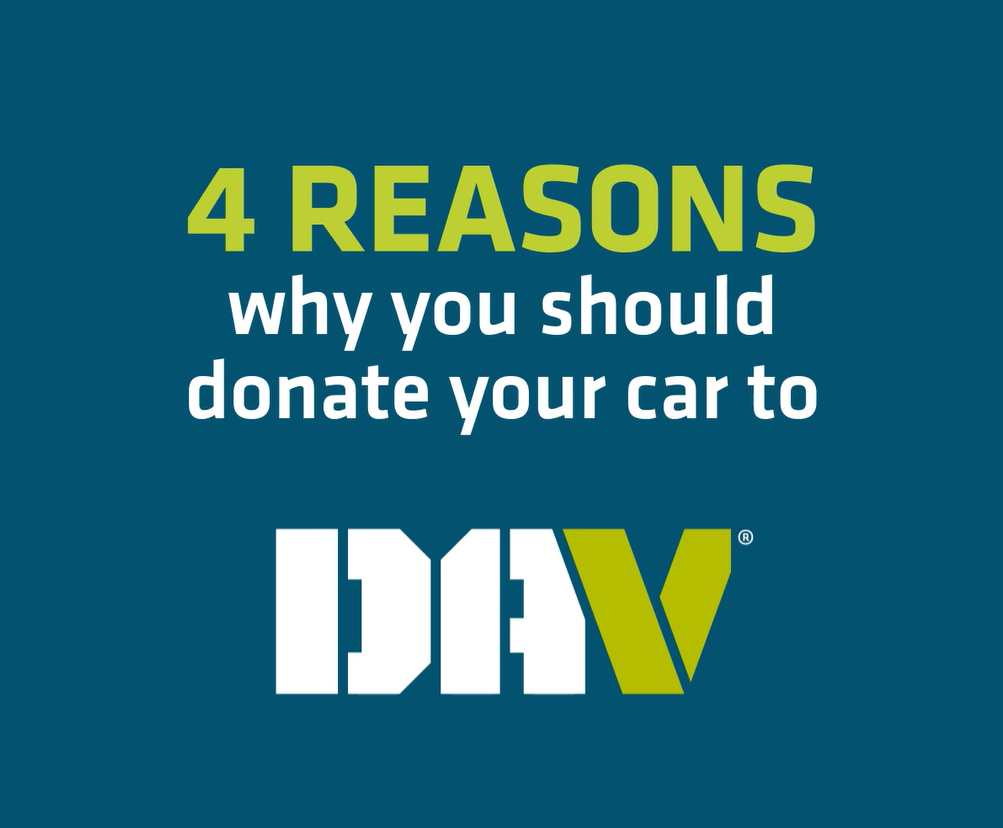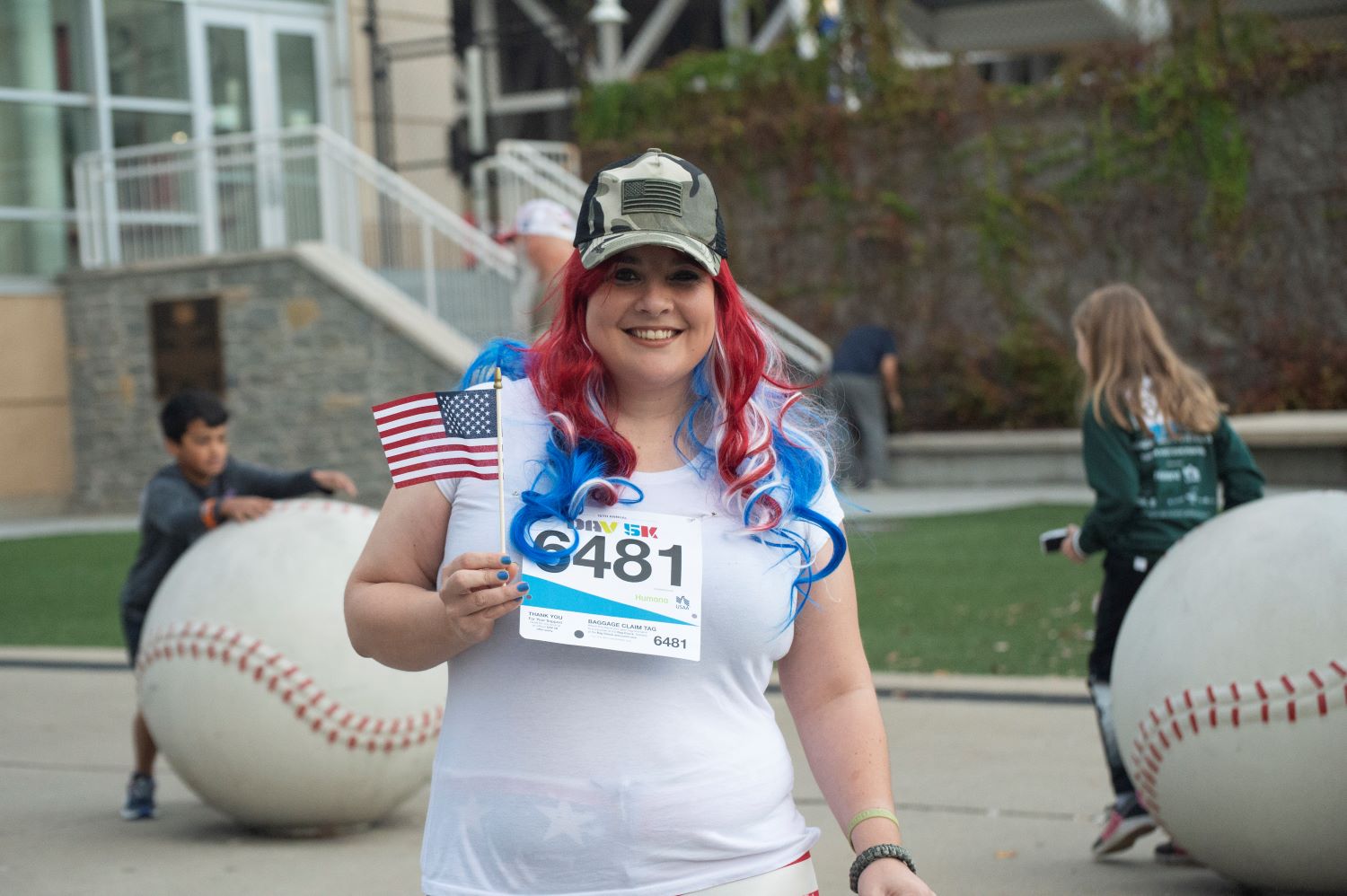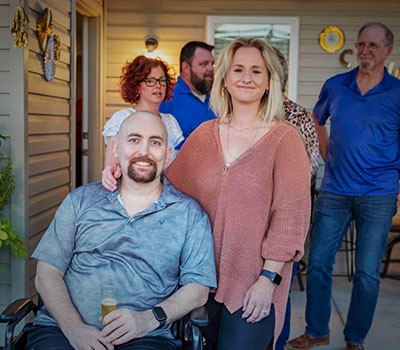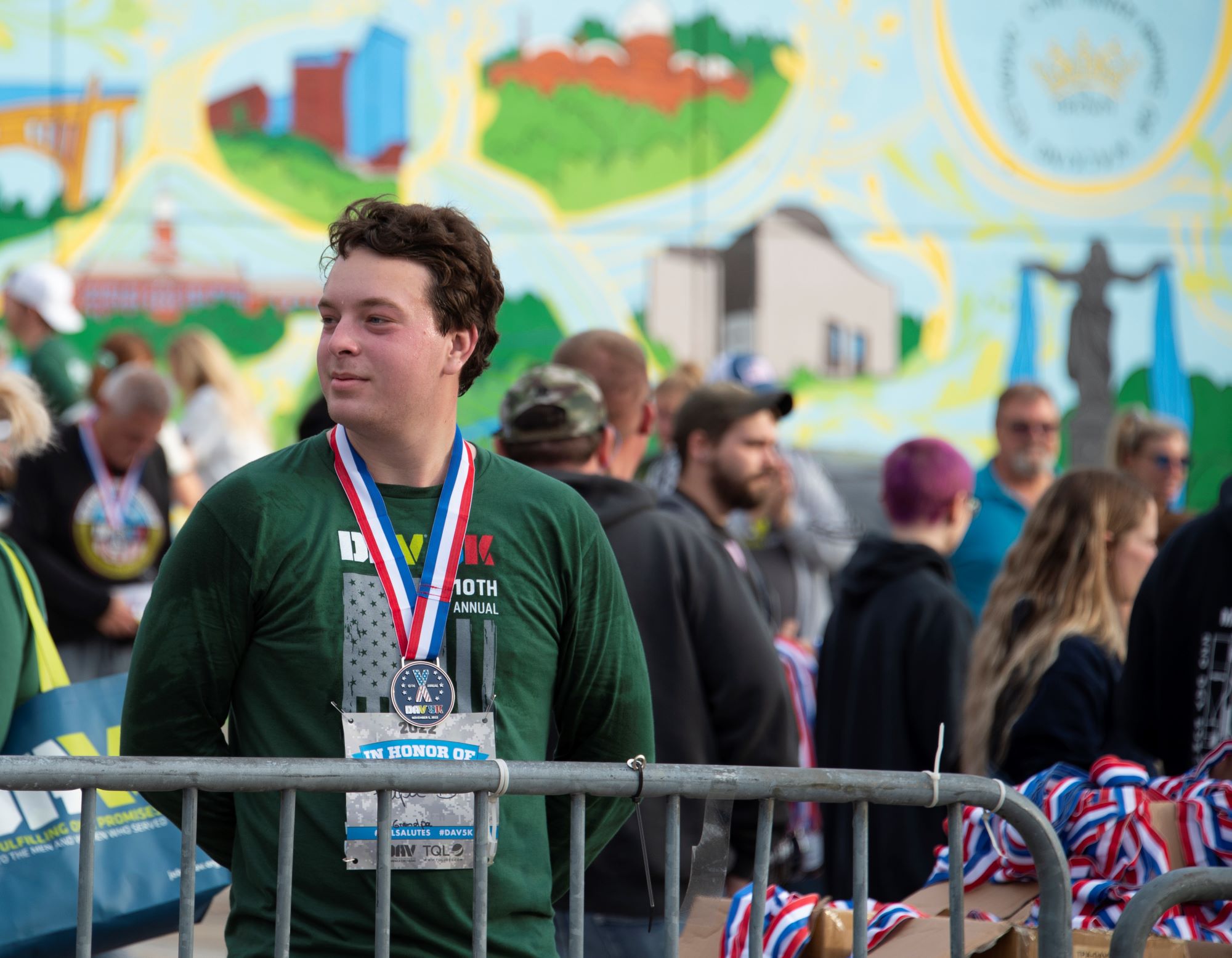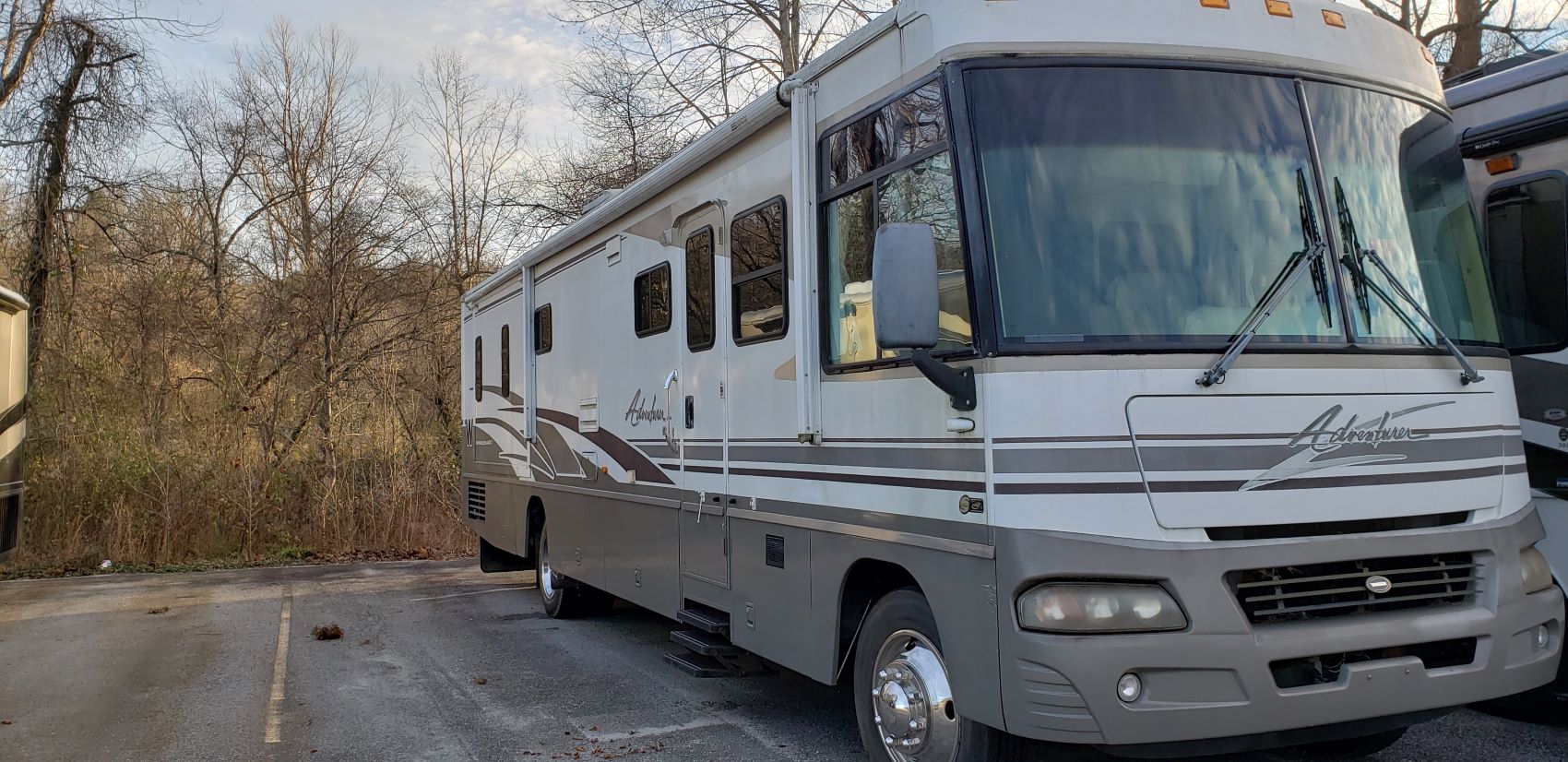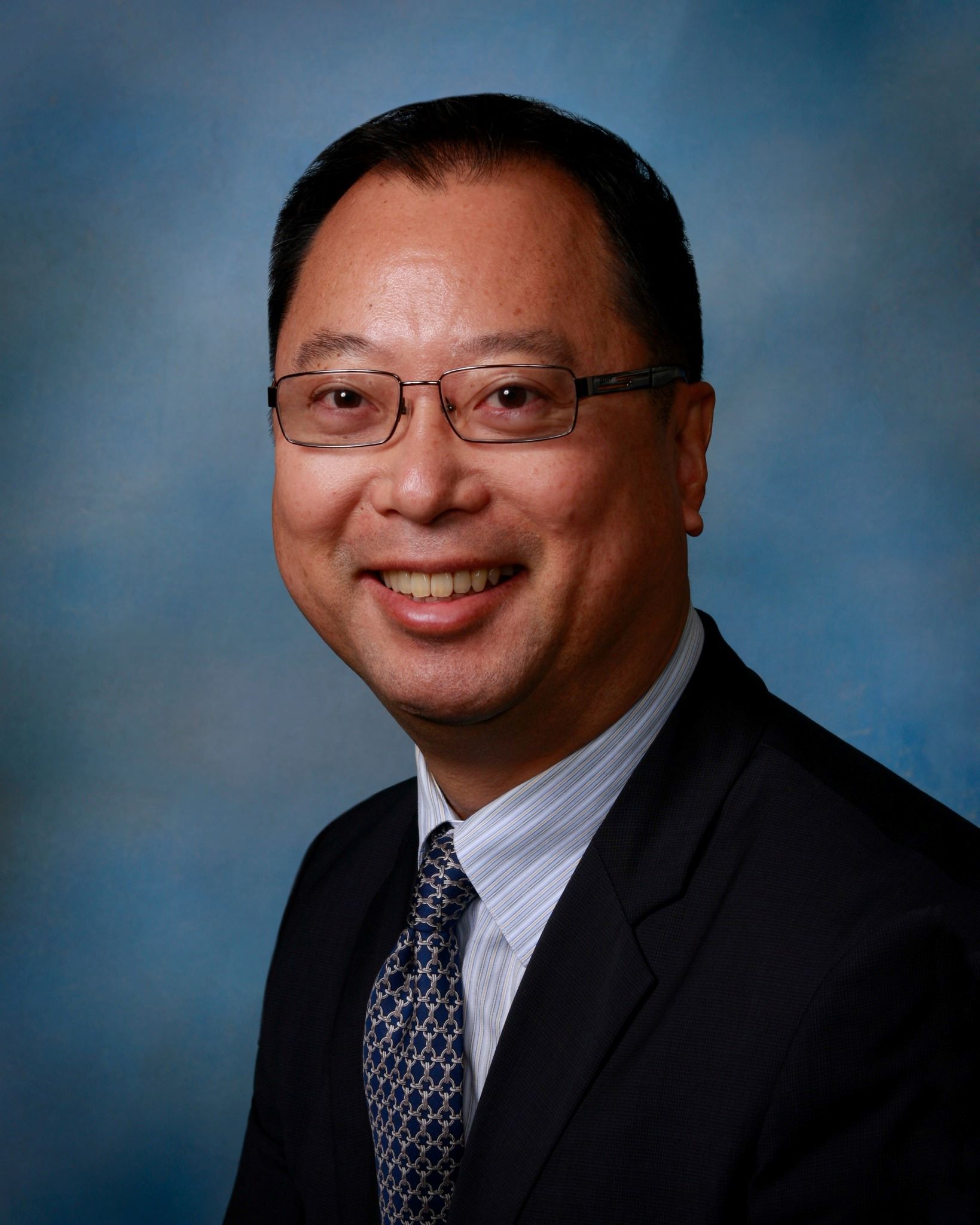Air Force veteran helps homeless veterans
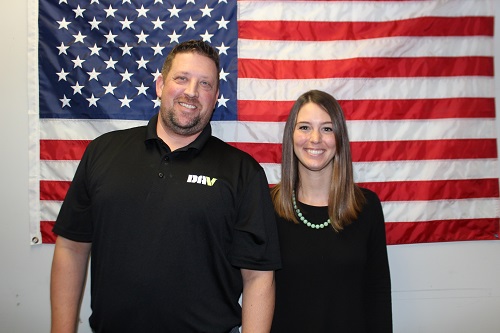
Air Force veteran Mike Rhilinger served his country for 19 years. But it wasn’t long after completing his military service that he discovered there were other ways he could continue to serve in a different capacity.
Today, Rhilinger, a DAV benefits advocate, makes a difference in the lives of his fellow veterans by being of service to them in ways that are quite often life-changing.
The “honor” of serving
After graduating from high school, enlisting in the military seemed a natural choice for Rhilinger; both of his grandfathers and his uncle were in service, and he’d always had a fascination with aircraft. Rhilinger served 19 years, ten of which were active duty.
During his service, Rhilinger deployed to Afghanistan, United Arab Emirates, Kurdistan, and Germany on mortuary affairs mission which meant transporting bodies off the field and prepping them to get them home.
“It was an honor to get people home,” says Rhilinger. “Most was done in Germany, that’s where we were getting two or three angel flights a week. This was at the height of the insurgency, in 2006.”
It was during Rhilinger’s reserve time as a correctional officer that he was diagnosed with kidney cancer, which warranted removal of one of his kidneys and ultimately led to him leaving the corrections field. But it wasn’t long before he saw that the end of one chapter would lead to a meaningful next one.
“I had a DAV rep who happens to be my brother-in-law, and he helped with my claim,” says Rhilinger. “I loved what he did for me and my family, and I wanted to do the same.”
Rhilinger applied for a position as a DAV benefits expert and was hired.
Following “the need” for help
In the fall of 2017, a homeless veteran came to Rhilinger’s office in Boston for help with a claim. He told Rhilinger there were a lot of men and women at the nearby homeless veteran center, the New England Center and Home for Veterans, who needed help but were either too embarrassed or couldn’t leave the facility because of addictions or ankle bracelets.
“I thought, well, there’s the need,” says Rhilinger. “I contacted the operations person at the center and asked if he would be open if I came over there after duty hours here, to see if we could help out with claims. He agreed and we did it once in October and once in November, and it just took off.”
Around that same time the New England Center and Home for Veterans (NECHV) implemented a veteran benefit liaison, Alexandra Sielecki, who was already working as a clinical caseworker at the center. She and Rhilinger worked together to develop a process, with Rhilinger teaching her about the necessary items for claims filing, to be shared with her other case manager. They learned to build a client file, and the process would prove efficient and beneficial in aiding the center’s veterans with benefit claims.
“I go there once a week and it allows me to see about 12 veterans in two hours who already have their paperwork, whether we’re following up on existing claims or filing new claims,” says Rhilinger.
The center has implemented DAV in its in-processing so veterans can sit down with Rhilinger so he can assist them with applying for benefits from the Department of Veterans Affairs.
To date, Rhilinger says 85 residents of the center have received favorable decisions from the VA that resulted in monthly benefits based on injury or illness they suffered while on military service, and have had another six appeals expedited which were more than four years old under previous representation.
A caring collaboration
The mission of the New England Center and Home for Veterans is to equip veterans who are facing, or are at risk of homelessness, with the tools for economic self-sufficiency, and to provide them with a new path to achieve successful and dignified independent living. During a typical year, NECHV provides transitional housing and residential services for up to 1,000 veterans. The center also provides community-based, in-home support services to more than 500 veterans annually, to keep them stable and successful in the community before homelessness can occur.
Sielecki, who recently accepted a position with the Boston VA Medical Center, worked with NECHV’s Veterans 360 Behavioral Health Programs which included the center’s transitional residents, totaling 185 beds. She points out that numerous factors are barriers to housing for veterans: behavioral health issues, substance use, legal issues, inability to afford market rate housing, long waiting lists for subsidized housing, and lack of access to resources and benefits.
“Giving veterans greater individualized access to DAV’s services opens up the possibility for them to receive VA compensation and eligibility for healthcare services,” says Sielecki.
Sielecki says she knew when Rhilinger reached out to the center to see about establishing a collaboration that he was someone passionate and reliable and should be further integrated into the center’s work.
To inform the center’s staff about DAV’s impact, Rhilinger presented at a NECHV’s Human Services Department meeting to explain his work as a DAV NSO and how it assists veterans in accessing resources that can help them achieve stability. He explained the broad scope of assistance DAV can provide in areas such as compensation, health benefits, and discharge upgrades.
“Mike was also aware that a barrier to housing could be owed debts to previous landlords, utility companies, and so on,” says Sielecki. “He informed the team of financial resources through the DAV and PenFed that assists veterans with funds to pay off certain debts.”
Overall, Sielecki says, Rhilinger’s consistency, knowledge of benefits, and personal military experience proved to be key factors in gaining the trust of the center’s veterans and the NECVH staff; a trust that was critical.
Start with trust…
Sielecki says establishing trust has had a grand impact on the veterans at the center, who, in turn, spread the good will by sharing information with one another about the services they receive.
“We started seeing a growing interest in many of the residents, and a great sense of hope that Mike would be with them all steps of the way, if needed,” says Sielecki.
Soon, conversations that were about unsuccessful claims due to lack of follow-up were replaced with better outcomes as Rhilinger kept the veterans and staff engaged and in the loop on claims.
Rhilinger chooses three to four days a month to visit the center and on those days, Sielecki displays flyers throughout to make sure that veterans are aware of his visit, have a release on file, so that when they meet with Rhilinger they're prepared to discuss the assistance needed.
Rhilinger created a spreadsheet listing the veterans he works with which identified their case manager, the dates forms were submitted, outstanding paperwork, and claim status.
“By having Mike come into the center during the hours he does, he shows the residents that a provider is willing to go above and beyond, and come in during off hours to make it easier on them,” says Sielecki. “I believe it created an inviting atmosphere. It showed that he was genuine about the work he did and that he would be an advocate to their process.”
Rhilinger’s “genuine” care about the veterans has made a strong impact.
“I would like to highlight that the assistance the veterans have received has not only changed things financially, but emotionally in the trusting relationships they were able to form,” says Sielecki. “The information shared in these claims can be extremely traumatic and distressing for veterans to share and relive. Mike created a welcoming atmosphere and used his knowledge and expertise to create an environment where veterans feel safe to share their story.”
Financially, Sielecki says the benefits awarded have provided veterans with a chance to identify stable housing. Some veterans, she says, utilize retro payments to pay back debts that were once barriers to housing. They’ve also seen the benefits provide a greater sense of self-worth, affording veterans the means to buy new clothing with their own money, and afford any essentials they might have had to go without when finances were minimal. The assistance has had measureable impact on the veterans’ lives.
Trying transitions meet care and solutions
Army veteran Robin Adams served in the Army from 1978 to 2004. Transitioning from service to civilian life proved daunting. He returned to a tough job market and expensive housing.
“My previous landlord didn’t have a spot for me, and apartments were expensive,” says Adams. “I had to live with my family until I could find something suitable.”
Adams also struggled with post-traumatic stress disorder.
“Being witness to many traumatic events has had a lasting impact on my life,” he says. “It’s not just witnessing something on TV, it’s happening right in front of you, and its real life. I’ve had to live with these unpleasant images and nightmares over time.”
DAV and NECHV made a big difference in Adams’ life.
“Without Mike and the center working together, I would not be able to afford what I have today,” says Adams. “I now have a place to live and the ability to fill it with what I want. I am able to pay back debts and hope to become debt free.”
Trust was a critical piece of Adams’ progress.
“Mike put himself out there to win my trust,” says Adams. “He explained that if I am honest, and put it all out there, he can help me better. He was able to show me that people are out there that can be trusted and want to help me.”
Navy veteran Matthew Nelson describes his transition from service to civilian life as “abrupt and cold.”
“I felt like I was falling behind on a time table toward progression,” says Nelson, whose grandfather fought in WWII and his father was in Special Forces in Vietnam.
Service-connected for PTSD, Nelson found both employment and relationships to be difficult. Thanks to the assistance he received through DAV and NECHV, Nelson is now able to provide for his children and look forward to a brighter future.
“Mike and the New England Center and Home for Veterans has been professional and dedicated to helping me form a direction in life and achieving the benefits I deserve and am entitled to,” says Nelson. “Being entitled to these benefits has now allowed me to provide a more stable and safe environment for myself, my children, and whomever I choose to bring into my life.”
Sielecki describes Rhilinger as “a true blessing to work with.”
Rhilinger ever so humbly embraces the work that matters – carrying out DAV’s mission.
“Trust is big – we stay true to who we are as DAV,” says Rhilinger.

